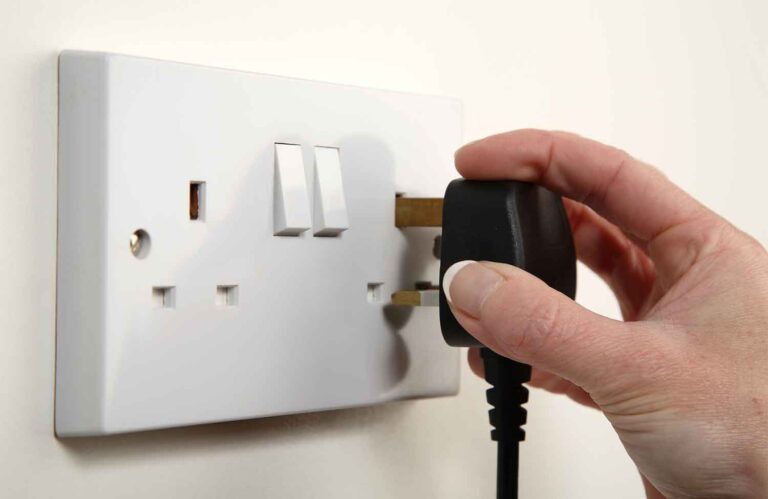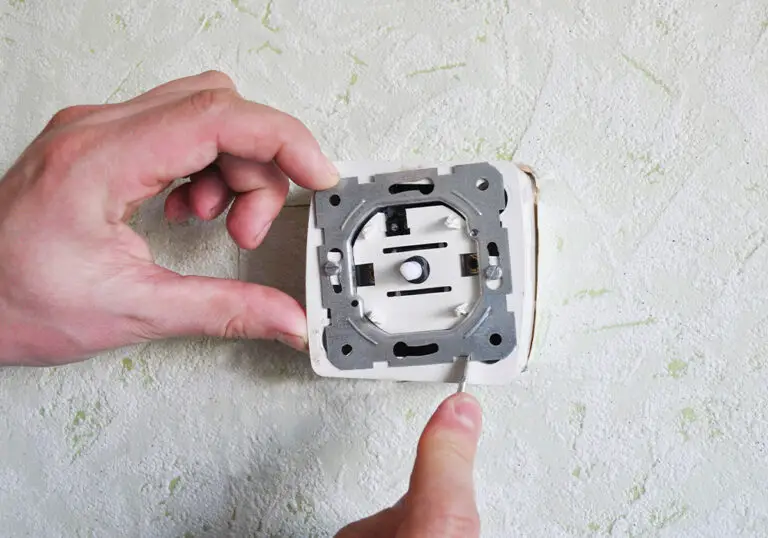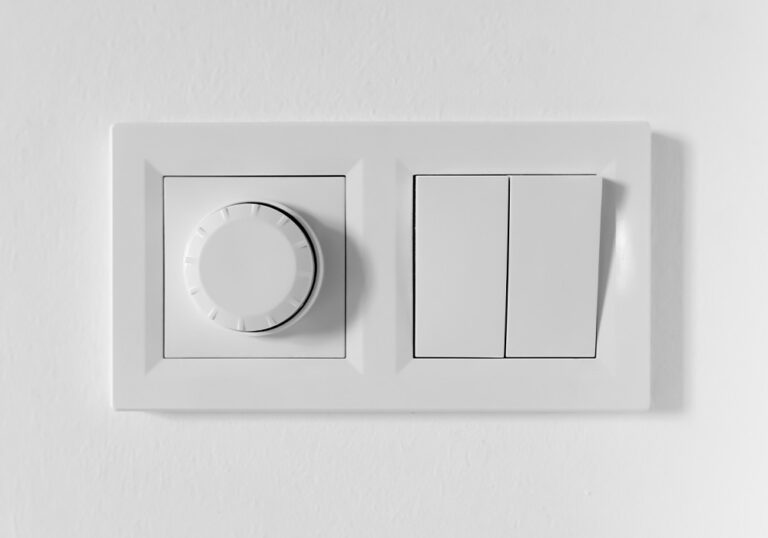How Much Does a House Rewire Cost in the UK?
When considering a house renovation, one crucial aspect is the electrical wiring. This is particularly true for older properties in the UK, given that outdated wiring can pose safety risks, and updating the system is essential to ensure compliance with current regulations. As such, knowing the cost of a house rewire can be an essential part of budgeting for home improvements.
The cost of rewiring a house can vary significantly depending on various factors, such as property size, location, and accessibility. Generally, homeowners should expect to pay between £3,000 and £6,000 for a complete rewiring, but it is essential to bear in mind that more extensive projects, or properties with particular complexities, may incur higher costs. Obtaining multiple quotes from reputable electricians can help to ensure a competitive price and accurate assessment of the project scope.
It should be noted that while rewiring a house can be costly, the investment is worth the expense in ensuring a safe and compliant electrical system. Moreover, updated wiring can improve energy efficiency and potentially increase the property’s value, making this project a wise choice for homeowners seeking to maintain and enhance their home’s performance.
Understanding House Rewiring
Reasons for Rewiring
There are several reasons why a house may need rewiring in the UK. One of the main reasons is ageing electrical systems, which can become unsafe and inefficient over time. This could lead to potential hazards, such as electrical fires or electrocution. Another reason for rewiring is to accommodate new appliances or technology, ensuring that the electrical system can handle the additional load. Additionally, homeowners may want to rewire their house as part of a renovation project, or to improve energy efficiency and potentially reduce electricity bills.
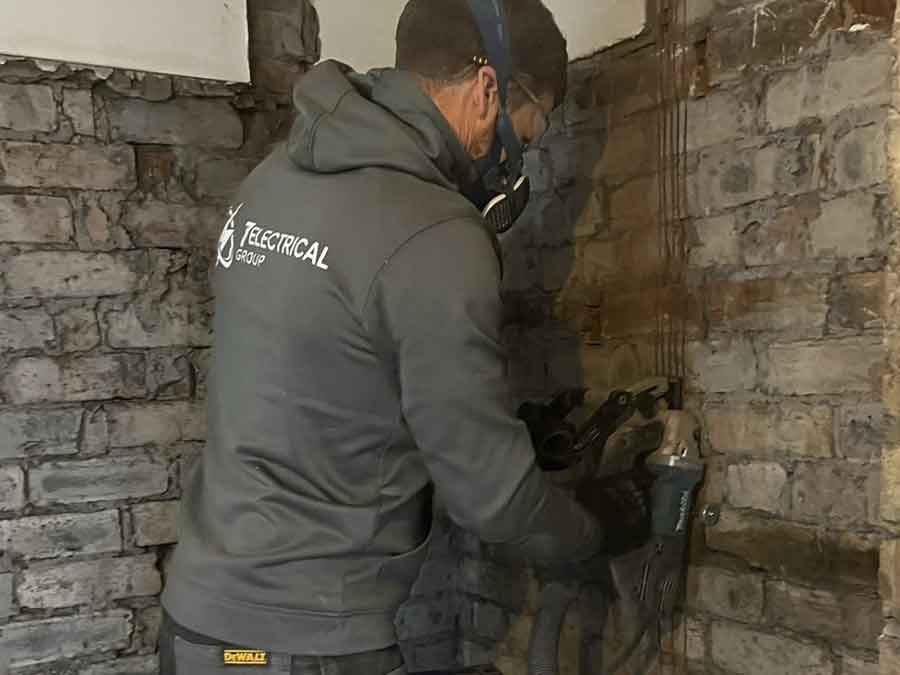
Process of Rewiring
The process of rewiring a house in the UK typically involves several stages. First, an electrician will assess the current electrical system and determine the extent of the required rewiring work. This may involve inspecting the wiring, sockets, switches, and distribution board. The electrician will then provide a tailored plan and quote for the rewiring project, taking into consideration factors such as the size of the house, materials required, and any specific homeowner requirements.
Next, the electrician will disconnect the existing electrical system and remove old wiring, sockets, and switches. The new wiring will then be installed, in accordance with the plan provided. This includes running cables, fitting new switches, sockets, and possibly a new distribution board, if needed.
During the rewiring process, it is essential to adhere to the current UK electrical safety regulations and standards. This ensures that all work is carried out safely and to the required standard, reducing the risk of future electrical issues.
Once the rewiring has been completed, the electrician will test the new electrical system to ensure it is functioning correctly and safely. A safety certificate will then be issued to confirm that the work complies with electrical regulations.
In terms of cost, the price for rewiring a house in the UK can vary depending on several factors. These include:
- Size and complexity of the property
- Age of the existing wiring
- Type and quality of materials used
- Local electrician rates
As a rough guide, the cost of rewiring a three-bedroom house in the UK can range from £3,000 to £6,000. It is essential to obtain multiple quotes from different electricians to ensure that you are receiving a fair and competitive price for the rewiring project.
Cost Factors for House Rewiring in the UK
Size and Age of the House
The cost of rewiring a house in the UK depends on several factors, including the size and age of the property. Larger homes will require more materials and work, resulting in higher costs. Additionally, older properties may have outdated wiring systems, which can complicate the rewiring process and significantly increase costs.
- Small properties (1-2 bedrooms): £2,000-£3,000
- Medium-sized properties (3-4 bedrooms): £3,500-£4,500
- Large properties (5+ bedrooms): £5,000-£8,000
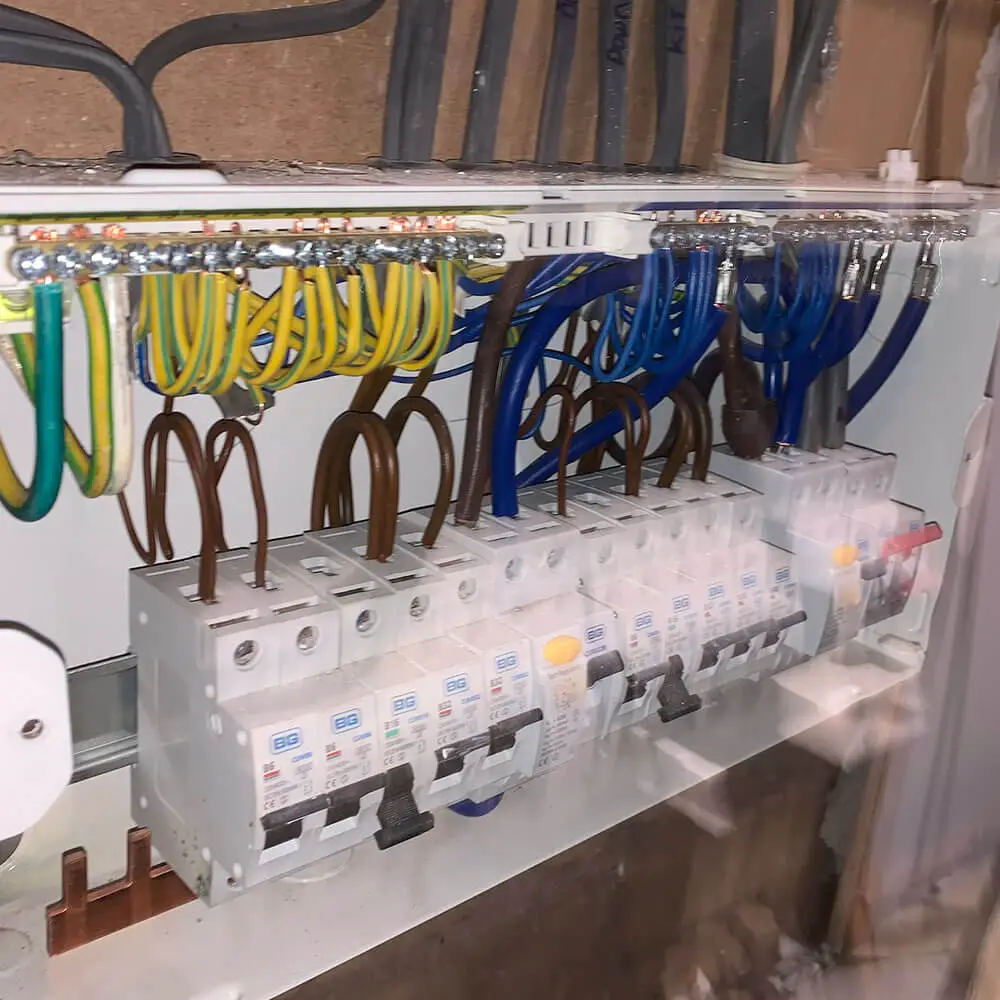
Materials and Labour
Another significant cost factor for house rewiring is the materials and labour involved. High-quality wiring, components, and skilled electricians all contribute to the overall cost. In the UK, the typical labour charge for an electrician ranges from £150-£250 per day, while the price of materials varies depending on the quality and quantities required:
- Copper wiring: £5-£10 per metre
- PVC conduit: £1-£3 per metre
- Junction boxes: £1-£5 each
Electrical Components and Fixtures
Finally, the electrical components and fixtures required for house rewiring also contribute to the overall cost. Upgrading fixtures and fittings, as well as adding new sockets or lighting options, will impact the final price:
- Consumer unit: £300-£600
- Switches and sockets: £40-£70 each
- Light fittings: £40-£70 each
In summary, house rewiring costs in the UK are influenced by the size and age of the property, the materials and labour required, and the specific electrical components and fixtures needed. Each of these factors must be considered when evaluating the cost of a home rewiring project.
How Long Does It Take To Rewire A House?
Rewiring a house in the UK typically takes about two to four weeks for the average-sized property. Several factors can influence the duration of the rewiring process. These include:
- The size of the house: Larger homes with more rooms and complex layouts usually take longer to rewire compared to smaller properties.
- The age of the property: Older houses often have outdated wiring systems that can be more time-consuming to replace.
- The availability of the electricians: The time it takes to complete the rewiring can be affected by the electrical team’s schedule and workload.
- The scope of the rewiring project: If additional work is required, such as updating the electrical panel or installing new light fixtures, the project timeline can be extended.
It’s worth noting that the duration of a rewiring project can be shorter if the house is unoccupied, as electricians can work more efficiently without having to navigate around furniture and household items. Additionally, the homeowner’s preparation can also help to reduce the time required for the project. This could involve decluttering rooms, creating easy access to electrical outlets, and discussing specific requirements with the electricians before they start the work.
While rewiring a house is a significant undertaking, spending the necessary time and resources on this project is essential for maintaining the safety and longevity of a home’s electrical system. Therefore, homeowners should not hesitate to invest in professional rewiring services when needed, ensuring their property’s wiring is up to date and complies with the latest UK regulations.
Cost Breakdown
Average Cost of Rewiring in the UK
Rewiring a house in the UK typically varies depending on factors such as the size and age of the property, the number of rooms, and the location. The average cost for rewiring a typical three-bedroom house can range from £2,500 to £4,500.
These costs are approximate and can vary depending on the complexity of the job and any additional requirements. It is essential to obtain quotes from multiple electricians to ensure you get the best value for your money.
Additional Costs to Consider
When rewiring a house in the UK, there are often additional costs to consider. These may include:
- Plastering and redecorating: Rewiring can cause damage to walls, ceilings, and floors. After the work is completed, you may need to budget for plastering and redecorating costs, as electricians typically do not cover those services. This expense will depend on the extent of the damage and the style of decor you choose.
- Upgrading the fuse box: If your home’s current fuse box does not meet modern safety standards, you may need to upgrade it. An electrician can advise you on whether this is necessary during the rewiring process, and the cost for a new fuse box can range from £250 to £700, depending on the type and complexity of the installation.
- Additional electrical work: While rewiring your home, it’s an opportunity to add or upgrade electrical points, such as sockets, lighting, or home automation systems. Consider these additional costs when budgeting for the rewiring project.
- VAT: The cost of rewiring services may be subject to VAT, which is currently 20% in the UK. Be sure to clarify with electricians if their quotes include or exclude VAT.
To ensure an accurate understanding of the costs involved in rewiring your home, it’s essential to obtain detailed quotes from reputable electricians and carefully consider any additional costs that may arise during the project. This approach will help you budget your house rewiring more effectively and efficiently.
Cost To Rewire A Bathroom
Rewiring a bathroom in the UK can vary in cost depending on several factors, such as the size of the room, the complexity of the wiring, and the location of the property. Typically, homeowners can expect to pay anywhere from £300 to £800 for a standard bathroom rewiring project.
The type of electrical components used in the bathroom can also impact the cost. Installing additional outlets or smart home features will likely increase the overall price. Conversely, basic specifications will be more affordable. It’s important to note that bathrooms have specific safety regulations regarding electrical installations, such as IP ratings, that must be adhered to by professional electricians.
Labour costs comprise a significant portion of the rewiring process, as experienced electricians are required to ensure that the work is done correctly and complies with UK safety standards. This can range from £150 to £350 a day depending on the location and demand for electricians. Additionally, disposing of old wires and installing new ones may affect the overall cost.
Rewiring a bathroom is an opportunity to address any potential safety issues in the electrical system and further enhance the space. Homeowners should:
- Obtain multiple quotes from qualified local electricians to better gauge the average cost for the specific project.
- Check for reviews and customer feedback of electricians to ensure quality workmanship.
- Consider the return on investment (ROI) of any additional electrical features that may increase the value of the property.
Keep in mind that while budgeting is essential, it can be counterproductive to choose the cheapest option without considering the potential long-term implications and additional repair costs down the line. It’s crucial to balance cost with quality workmanship to ensure that rewiring a bathroom in the UK is both safe and reliable.
Cost To Rewire A Kitchen
Rewiring a kitchen in the UK can come with varying costs depending on several factors. These factors include the size and complexity of the kitchen, materials used, location, and labour rates. It is essential to obtain a professional assessment to get an accurate estimate tailored to your specific needs.
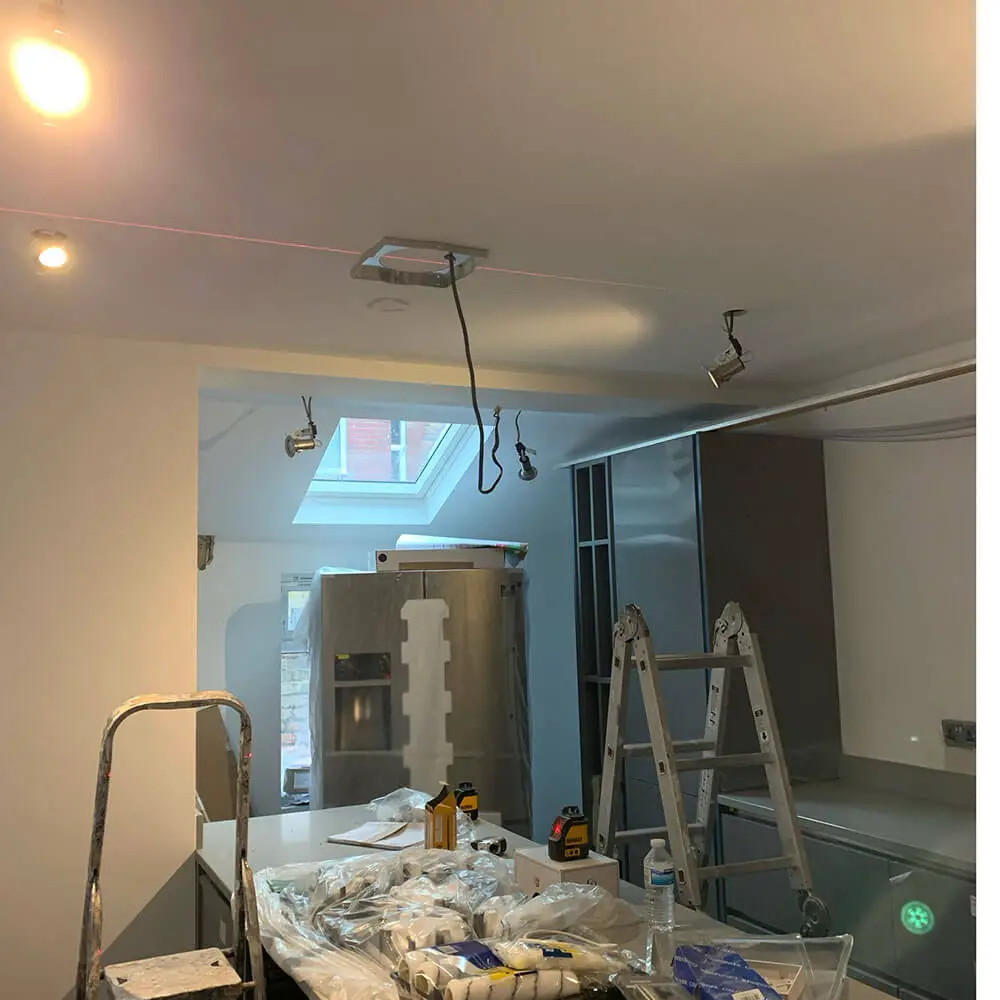
Typically, rewiring a kitchen can cost anywhere between £800 and £1,500+. This price range considers the possible variable costs such as the number of sockets and switches, the inclusion of under-cabinet lighting or additional appliances requiring dedicated circuits, and potential complications like limited access to wiring. It’s important to note that this cost is only for the kitchen and not the entire house.
Some components that might impact the rewiring costs are:
- Number of sockets and switches: Installing more sockets or switches will increase the overall cost, as they require additional wiring and labour.
- Additional lighting: Adding under-cabinet lighting or other specialty lighting fixtures can increase the price, given the complexity of installing them.
- Appliances requiring dedicated circuits: Appliances like electric ovens and dishwashers may need dedicated circuits, adding to the overall cost.
- Accessibility: Limited access to wiring areas may make the job more difficult and time-consuming, leading to higher labour costs.
It is worth noting that the cost of rewiring a kitchen as part of a larger house rewiring project is likely to be more affordable because professionals often offer bulk discounts for larger jobs. In such cases, the cost per room or area is typically lower.
To ensure a safe and compliant rewiring job, it is always recommended to hire a certified electrician who is well-versed in UK electrical regulations. Not only will this guarantee the quality of their work, but it can also provide peace of mind knowing that your property is in good hands.
In conclusion, while the cost of rewiring a kitchen in the UK can vary widely, it is crucial to obtain a professional assessment for an accurate estimate. Consider factors such as the number of sockets, additional lighting, dedicated circuits for appliances, and accessibility when budgeting for this project.
Cost To Rewire A Garage
Rewiring a garage in the UK can be a necessary step, particularly when upgrading your electrical system or converting the space for a different use. The cost of rewiring a garage will depend on various factors such as the size of the garage, the complexity of the wiring, and the electrician’s rates.
On average, a simple rewiring project for a single garage may cost around £800 to £1,200. For a double garage with more electrical points, the cost may increase to approximately £1,500 to £2,500. It is essential to gather quotes from different electricians to ensure you get the best price for the work required.
Several aspects can influence the cost of rewiring a garage:
- Size and layout: Larger garages with more electrical points will require more time and materials to complete the rewiring, which will increase the cost.
- Age of the garage: Older garages may require additional work, such as updating outdated components or removing redundant wiring, which can add to the overall cost.
- Type of wiring: If you need specific wiring types for your garage, such as heavy-duty wiring for power tools or workshops, this may impact the final cost.
- Local electrician’s rates: Prices for electrical work vary depending on location and the electrician you choose. Always obtain multiple quotes before deciding on an electrician.
In conclusion, the cost to rewire a garage in the UK depends on several factors, including the size, layout, age, and type of wiring required. Obtaining multiple quotes from electricians is essential to ensure that you get the best deal possible. Keep in mind that quality work from a reliable electrician is more important than the lowest price, as poor electrical work can lead to future issues and additional costs.
How to Save Money on House Rewiring
Getting Multiple Quotes
It’s essential to get multiple quotes from different electricians to ensure the best price. By comparing rates and services from various professionals, individuals can choose the most cost-effective solution for their rewiring project. Keep in mind that the cheapest quote may not always be the best option, as quality and safety should also be considered. Don’t hesitate to ask for references and reviews from previous customers.
DIY vs Professional Rewiring
While it might be tempting to take on rewiring projects as a DIY task, hiring a qualified professional often proves more cost-efficient in the long run. A professional electrician will have the necessary skills, knowledge, and certifications to ensure all rewiring work is completed safely and up to the latest industry standards.
Attempting to rewire a house without the proper training may lead to expensive and potentially dangerous mistakes, which can increase the overall cost of the project. It may also void warranties or insurance policies if electrical work is not carried out by a registered professional.
Nevertheless, some tasks can be performed by individuals without specific electrical expertise, such as preparing the workspace or removing old fixtures. These actions may save some money on labour costs. However, the actual rewiring process should be left to licensed electricians.
In conclusion, the best approach to save money on house rewiring in the UK is by obtaining multiple quotes and hiring a professional electrician. This will ensure a balance between cost-saving measures and safe, high-quality results.
Hiring An Electrician To Rewire A House Checklist
When planning to rewire a house in the UK, it is essential to hire a professional electrician. Here is a checklist to help you find the right electrician for the job:
- Qualifications and accreditation: The electrician should possess relevant qualifications and be accredited by a recognised body, such as the NICEIC. NAPIT or ELECSA. This ensures they are competent and adhere to the necessary safety standards.
- Experience and expertise: Look for an electrician who has experience in rewiring houses similar to yours. They should be able to provide references or testimonials from previous clients.
- Insurance: It is vital to ensure that the electrician has adequate public liability and professional indemnity insurance. This protects both you and the electrician in case of any accidents or damages during the rewiring process.
- Compliance with regulations: The electrician should be familiar with the latest electrical regulations, such as the BS 7671:2018 and Part P of the Building Regulations. This ensures the rewiring work is compliant with UK regulations and deemed safe.
- Transparent pricing: The electrician should provide a written quote detailing the costs involved in rewiring your house. This quote should include labour, materials, and any additional fees. It is advisable to obtain multiple quotes to compare prices and services offered.
- Timeframe: Inquire about the estimated time it will take to complete the rewiring project. This will help you plan accordingly and ensure minimal disruption to your daily life.
- Communication: Choose an electrician who communicates well and keeps you informed throughout the rewiring process. Good communication plays a crucial role in ensuring smooth project execution and addressing any concerns promptly.
By following this checklist, you can find a reliable and professional electrician to rewire your house, ensuring a safe and efficient electrical system.
Frequently Asked Questions
Rewiring time estimate
The time it takes to rewire a house in the UK largely depends on the size of the property and complexity of the electrical system. On average, a rewiring project may take between 2 to 4 weeks. Smaller properties can be completed more quickly, while larger or more complicated properties may require additional time.
Disruption during rewiring
During the rewiring process, there will inevitably be some disruption to the occupants of the house. Electricians will need access to various parts of the property, including walls, ceilings, and floors. They may need to remove furniture and possessions to reach specific areas. However, experienced electricians will strive to minimise disruption and will generally work room by room to allow occupants to continue using the rest of the house.
Rewire materials cost
The material cost for a rewire project can vary based on the quality of materials used, the size of the property, and the specific requirements of the project. On average, rewiring material costs may range from £400 to over £1,000. This includes items such as cables, sockets, switches, and fuse boxes.
Insurance coverage
Some insurance providers may cover the cost of rewiring if it is deemed necessary to maintain a safe and well-maintained home. It is essential to check your insurance policy and consult with your provider to determine if rewiring costs are covered.
Rewiring frequency
The frequency at which a house needs to be rewired depends on the age of the property and the quality of the existing electrical system. Properties built before the 1960s may require rewiring due to outdated systems, while newer homes with modern wiring might not need rewiring for several decades. As a general guideline, electrical installations should be inspected every 10 years to determine if rewiring is necessary.
5-bedroom rewire cost
The cost of rewiring a 5-bedroom house in the UK can vary, depending on factors such as the size of the property, the complexity of the electrical system, and the region in which the property is located. On average, rewiring a 5-bedroom house can range from £4,000 to £8,000 including both labour and material costs.



